From the London Tube to Brexit: Leonid Slutsky on life away from Russia as he looks to make it big in England
The former Russia head coach speaks to The Independent about immersing himself in British culture as he prepares for the new chapter in his managerial career
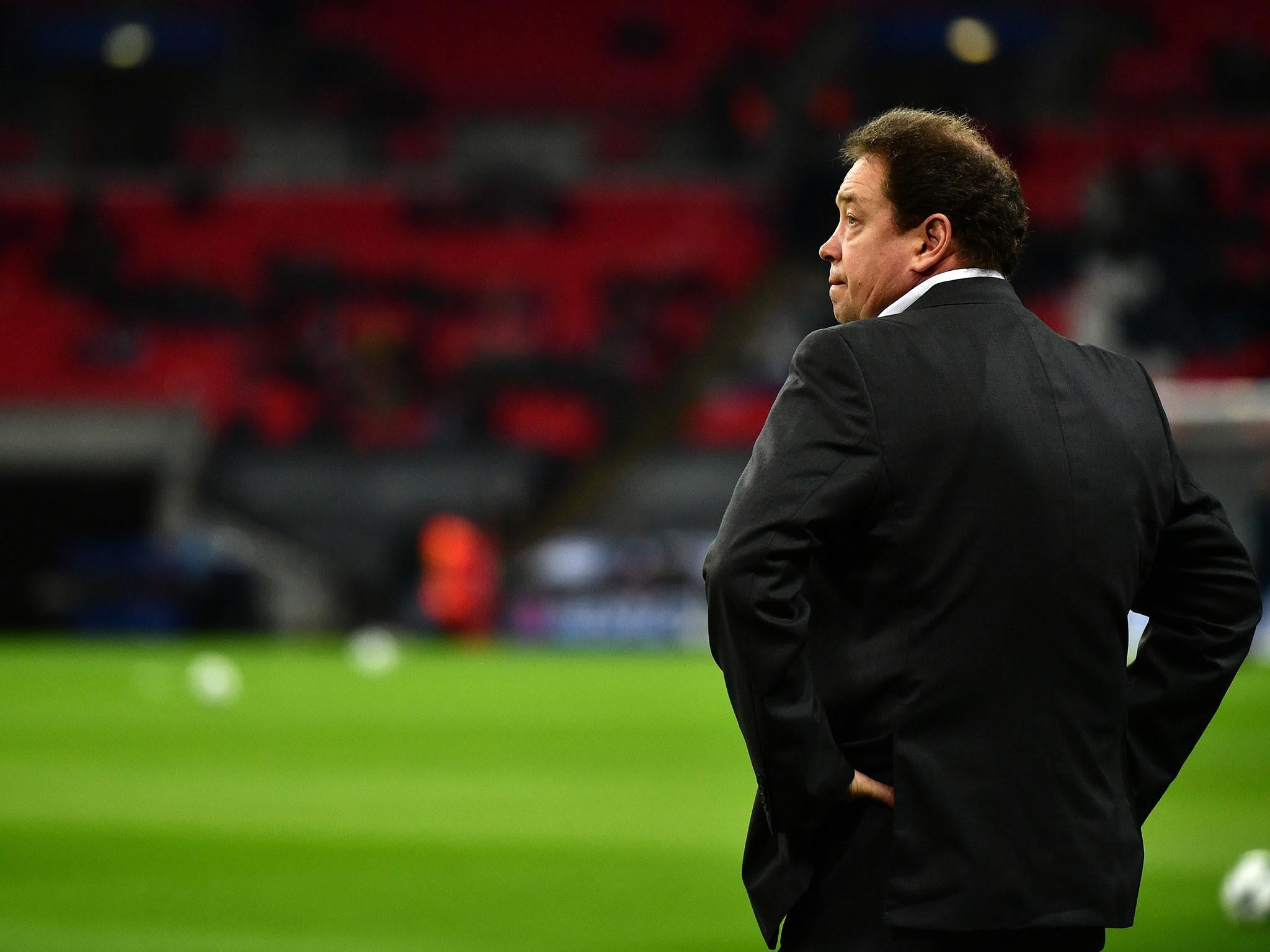
Before Leonid Slutsky decided to move in January to try and make it in the international managerial centre court that English football has become, he asked himself a question that some other coaches could have done with trying to answer of themselves, and that reflects a sharp mindset that has already so impressed Hull City.
“Can I manage in England?” the Russian says, explaining his thought process at the time. “Can I manage in a second language even though I couldn’t understand English six months ago?”
It may seem such a simple thing but, as recent cases show, it’s an increasingly significant one. Players’ struggles to understand their manager at difficult periods were cited as a reason for the departures of both Claudio Ranieri from Leicester City and Walter Mazzarri at Watford.
Slutsky doesn’t want to start any job with that needless disadvantage, and has been intent on giving himself the best possible chance of succeeding. It is that creditable refusal to rush into work in the world’s most lucrative league that genuinely marks him apart from a lot of his counterparts, especially when you consider just how how creditable his CV is. If he goes to Hull, they won't be getting some novice.
The 46-year-old has won three Russian titles with CSKA Moscow, with one of those part of a domestic double, and also guided the club to the Champions League quarter-finals. That is only the second time that one of the country’s clubs have got so far in the competition, after Spartak Moscow in 1995-96. It eventually led to Slutsky taking over the Russian international job from Fabio Capello and taking them to Euro 2016, where his side frustrated England with a last-minute equaliser for a 1-1 draw in Marseille.
Illustrating his astuteness as a manager, he felt he recognised potential in Roy Hodgson's side from that game, a quality that has actually been discussed a lot in the England camp this week.
“England have the best squad for the past 10 years. Dele Alli, Harry Kane… really strong squad. But, what’s really important is seems to be a lack of confidence. I felt it when we played England. When you scored [in Marseille], after we conceded the goal and you dream only about losing 1-0. But maybe the players - they adapt mentally for the Premier League - can’t adapt for the pressure of the World Cup or Euros. Having the pressure of the whole country is different from one club.
“You have some fantastic young players - Alli, [Eric] Dier, [Daniel] Sturridge - but there seems to be a lack of confidence when it comes to the national team. Reaching the finals is no problem but as soon as you get there, there seems to be a problem and that must be a mental problem."
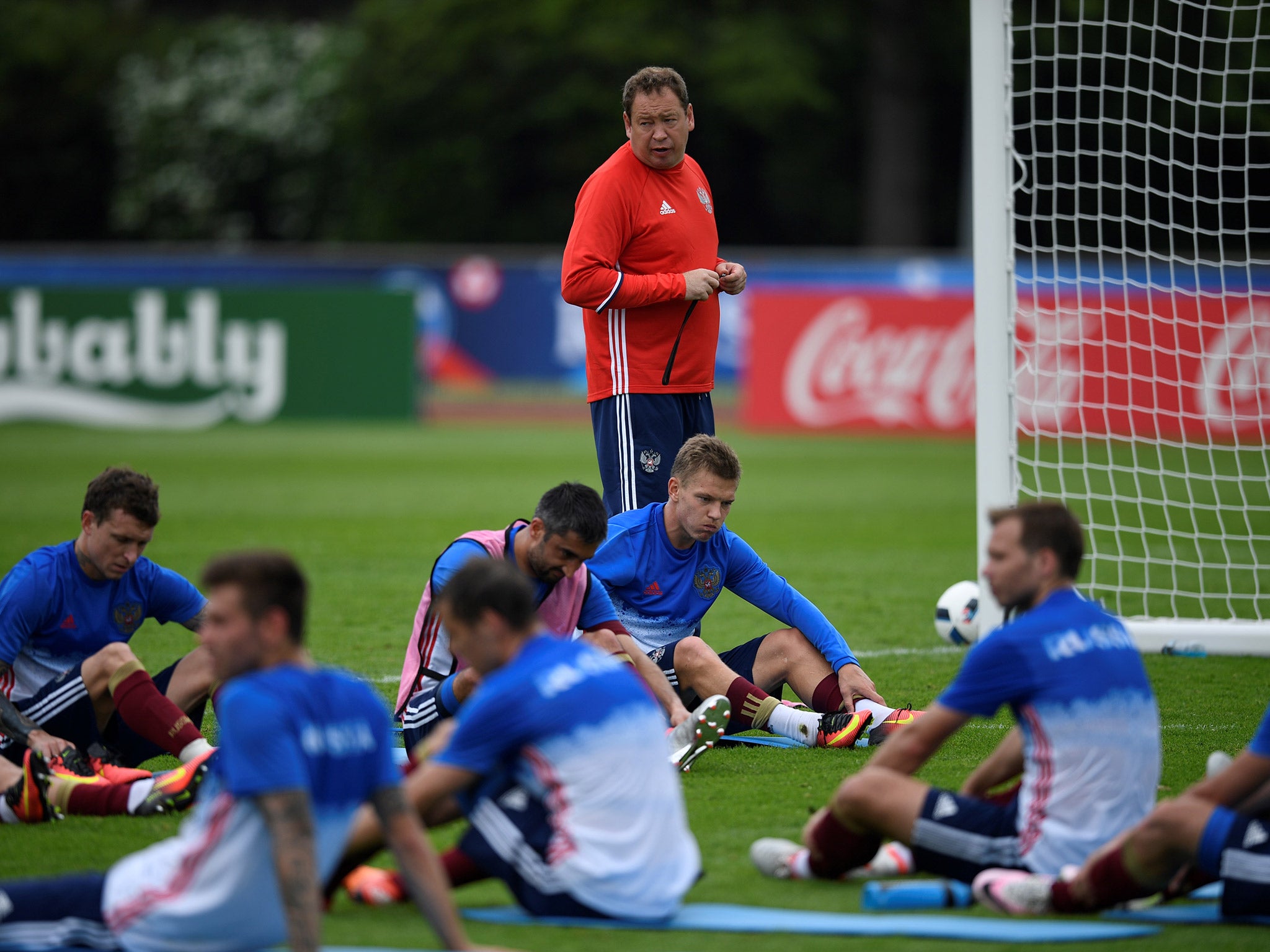
For all that, Slutsky is well aware that football achievements from his own country don’t travel all that well, and that he needed to travel to really make himself known; to get where he wants to be as a manager.
He himself thereby represents an interesting case study as a coach, even beyond how he is so determined to learn English. He is one of very few Russians in the modern game to leave what is often considered a somewhat enclosed football culture. That attitude is illustrated by the responses to some of his colleagues to what he is trying.
“In the past year, I left two very important jobs with the Russian FA, CSKA, and my friends think I am crazy! But it’s a very big challenge for me.
“I’m maybe the first Russian coach to leave Russia. Russian football is not very well known globally and the second reason is that the job is very well paid in Russia, so why leave? But, for me, it’s not about money, it’s more important to me to have a new challenge - that is what I enjoy.
“Now it’s a new challenge and of course I hope it will be a successful experience in my life. Being successful in England would be a bigger achievement than anything I have done in my career with the Russian national team, three Russian titles and the Champions League quarter-finals.
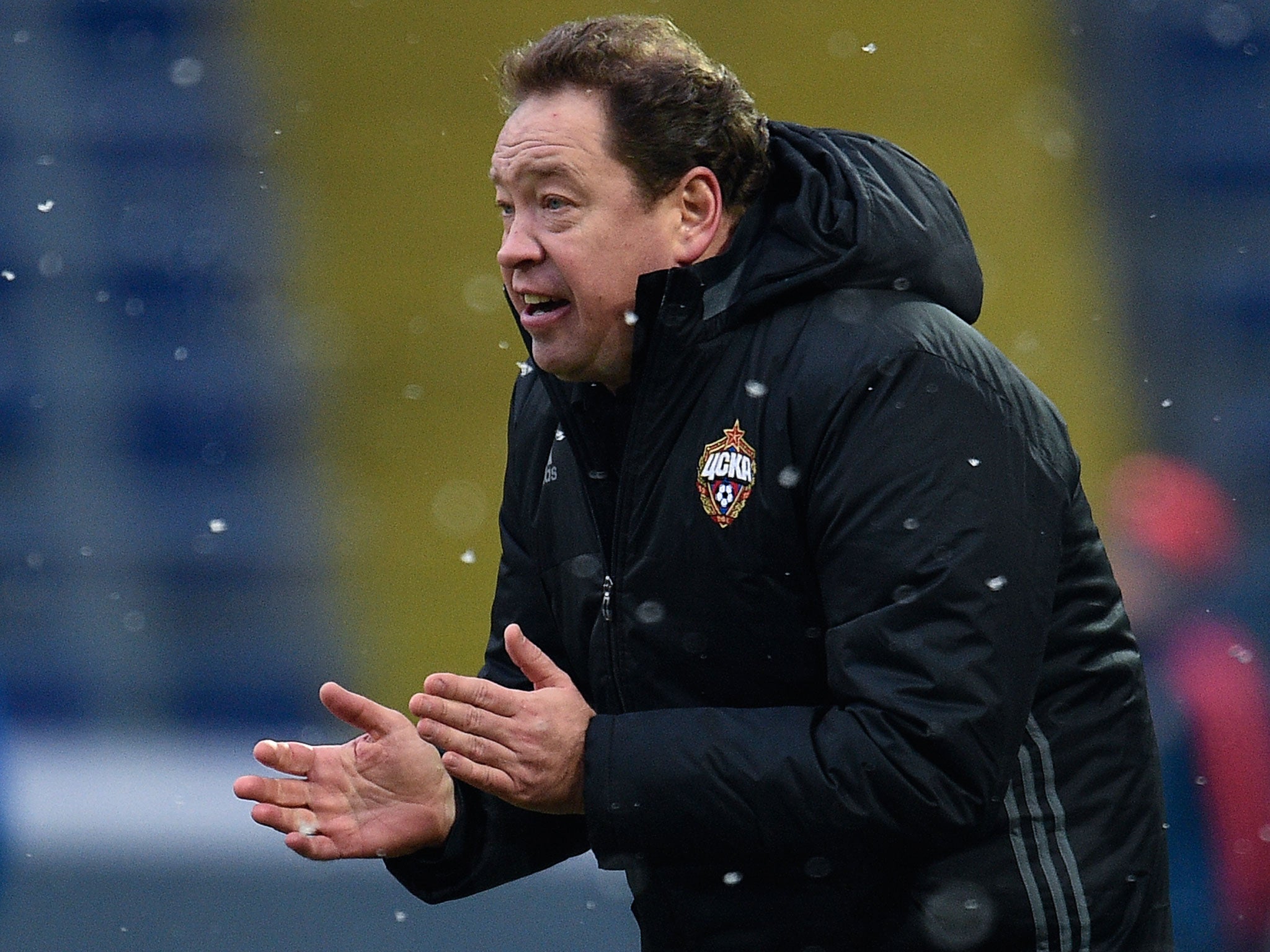
“I am ready to start in the Championship. I understand that I don’t have the experience of managing in the best in the league of in the world. Of course I would like to manage in the Premier League but I am also ready to manage in the Championship.
“People may think it’s strange that I leave such a big job for the Championship, but for me it’s a challenge, show I am ready and make the step up.”
The Russian national team will come under focus again in the next few weeks, as will their entire football structure, when the country hosts the Confederations Cup as a rehearsal for next summer’s World Cup. For all the fears and debate about it, though, the patriot in Slutsky has a message.
“I have some advice - if you want to enjoy the best experience then you must go to the World Cup in 2018. For Russian people, we are very proud, we are always proud and we make it special. The 1980 Olympics was one of the best, Sochi [2014] was a fantastic Winter Olympics.
“Every country has its problem - but hooliganism, racism is a problem in many places - not just Russia and it cannot be tolerated. We always open our hearts for foreign guys. Don’t worry. It will be a great tournament."
In his new country, Slutsky has regularly been entertained by an old friend from his home country, and admits it has been an advantage to his career: he has been working in an advisory role for Chelsea owner Roman Abramovich, as he gets to grips with English football culture and national culture. The Volgograd-born coach has travelled the country going to games, often by train.
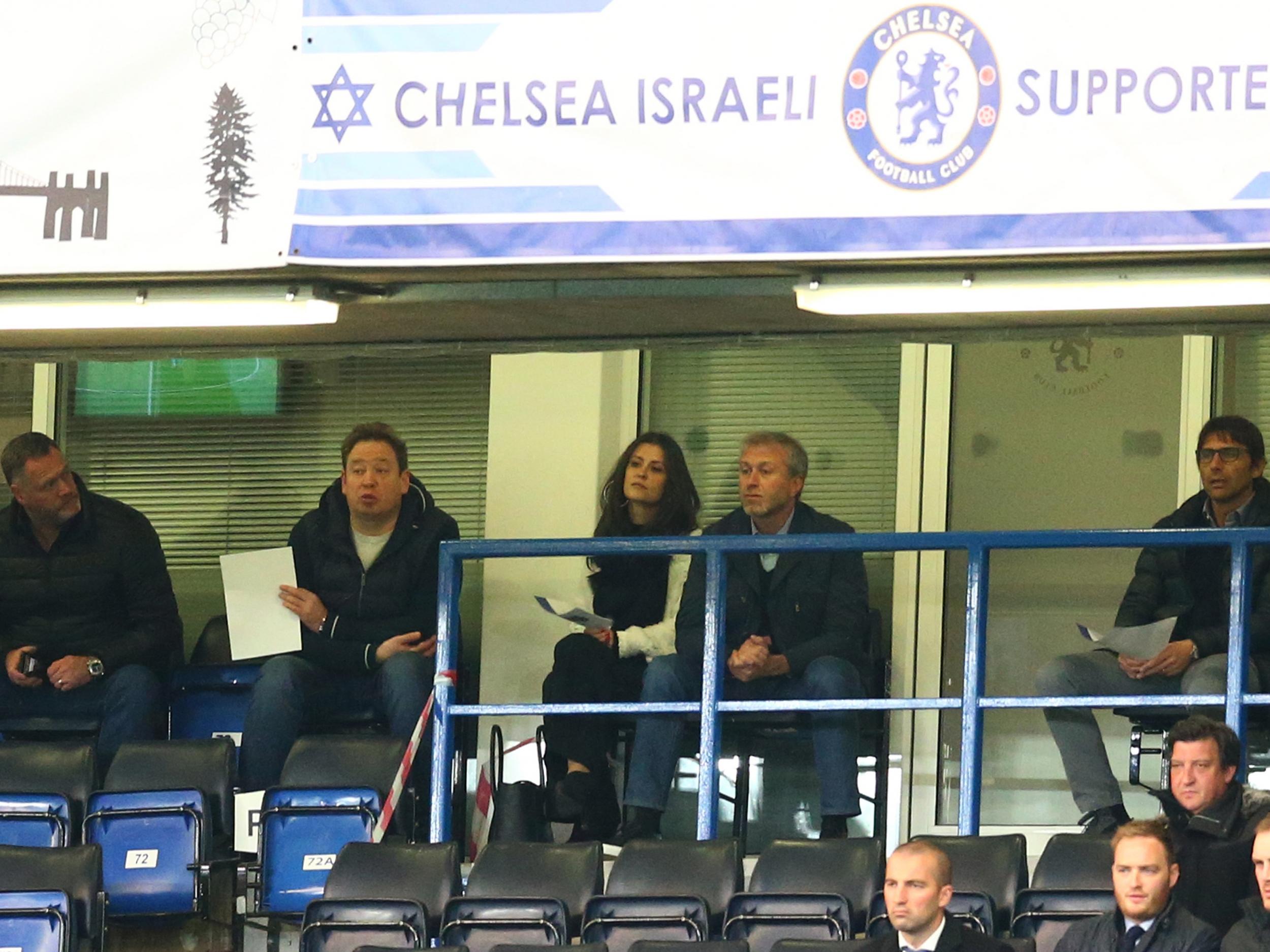
“Mr Abramovich is my friend, a very private man, but he’s really helped me in my new challenge and I am very grateful for his help. He’s given me a lot of advice with relationship with owners, players, managers and he’s got unbelievable experience from being successful at Chelsea.”
Slutsky is actually being interviewed in the Millennium Hotel on the grounds of Stamford Bridge, and is hugely affable company, cheery and laughing a lot. He is even known to have joked about what his surname sounds like in English, as well as the tragically unfortunate way his playing career ended.
“I was 18 years old, I played in the second division in the Soviet Union [with Zvezda Gorodishche], it was a good level. I was at home, my neighbour came to my door and she said: ‘my cat is stuck in a tree, can you help me?’ I went up, I fell down maybe six metres, my knee was like an atom bomb, I stayed in hospital for a year and that was it. I was nothing special as a player so maybe a good coach was born that day.
“I started my coaching career at 22 or 23, at a sports school, I had some success with my work with boys, we won all the championships at their age group. We had great success, I am very proud and it was my first experience.”
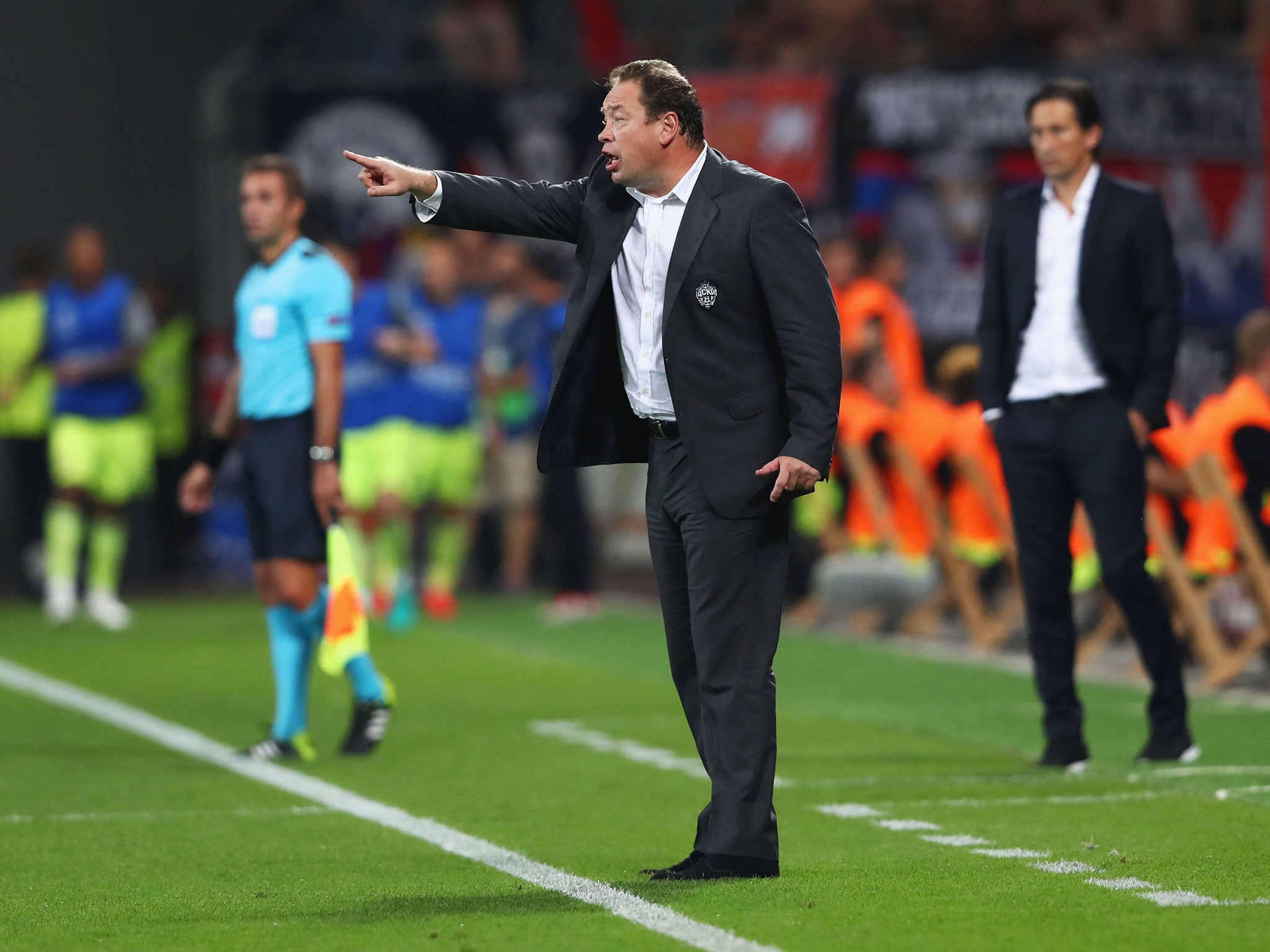
Slutsky was actually working with Rotor Volgograd when they knocked Manchester United out of the 1995-96 Uefa Cup on away goals despite Peter Schmeichel scoring, and he notes how one of the first English football phrases he learned was “Fergie time”.
His own English has already come along, a result of having worked in the highly respected Riversdown language school.
To prove himself as a manager in this country, though, Slutsky feels you have to go much deeper than just knowing the language in order to communicate.
“I try to live life in London, take the Underground, go to musicals. I had a big surprise with the Musical Book of Mormon. We’ve had Mamma Mia and Cats. It was a big surprise because you cannot joke about religion in Russia!
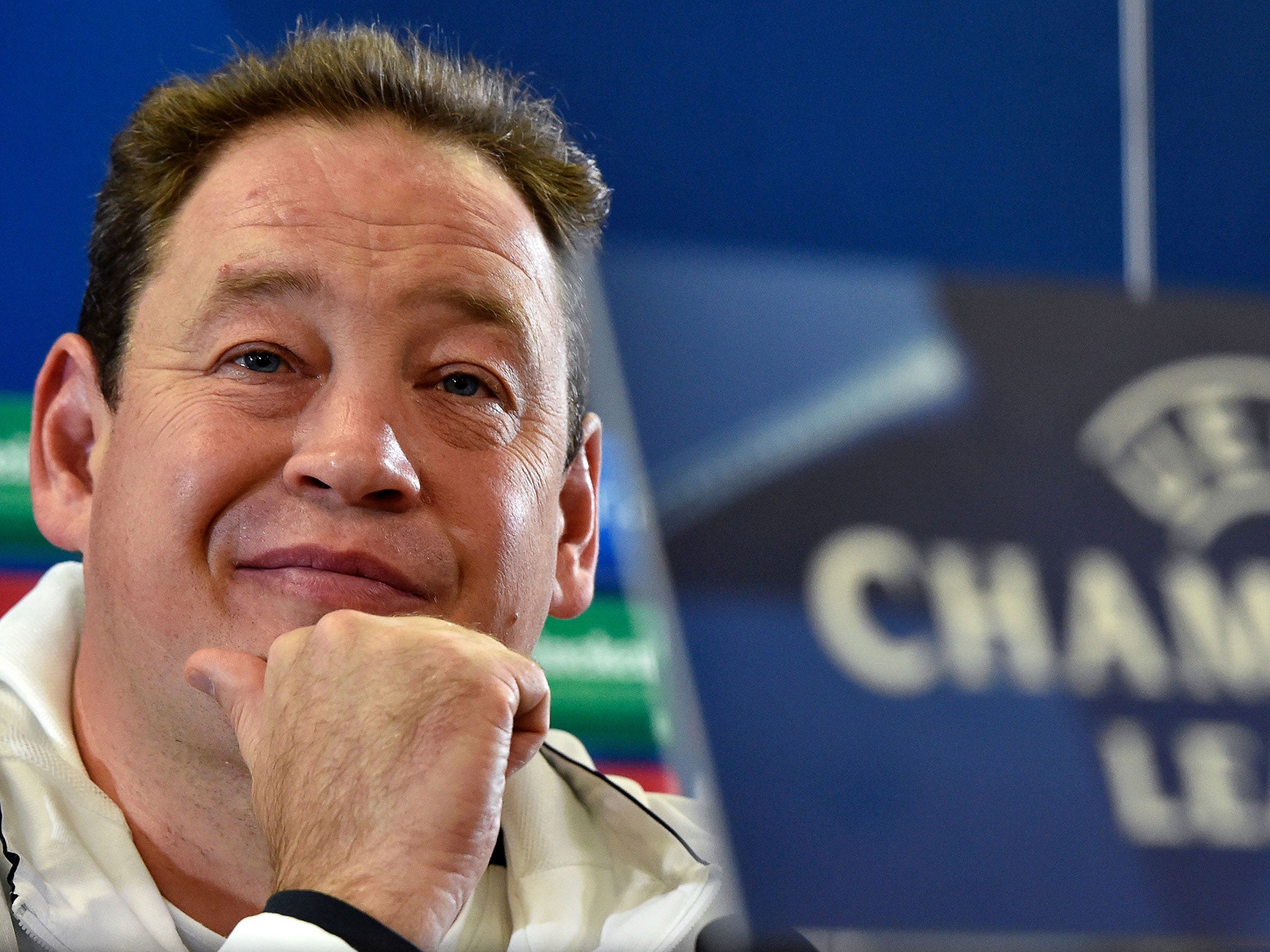
“I don’t know if it’s important, but if you work in another country, you must understand tradition, culture and language. I must communicate with people about many things. Brexit, politics and I try to adapt to the life here.
“If I want to be successful here then I must know everything about life, culture. I had lovely trips to Liverpool, Winchester, Southend and in each city I go to the important places the cathedral and the centre.
“Many coaches have come to Russia but none of them spoke Russian. [Andre] Villas-Boas and [Guus] Hiddink. They were great coaches but they just felt like guests. If managers cannot speak the language, for me, that’s not good. It’s very important, a big part of my work to understand the players, the owners and the supporters.
“If you go to my house, always the BBC is on, I’m a big patriot, but in my career I need a new challenge and of course it’s very important to understand the culture and language.
“I have watched a lot of English football in the past few months, the Premier League, the Championship and League One and I feel I will be ready.”
He’s ready to be much more than a “guest”. He wants to make sure he's as ready as possible. Hull may well feel the benefit.
Join our commenting forum
Join thought-provoking conversations, follow other Independent readers and see their replies
Comments